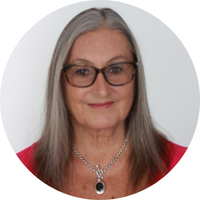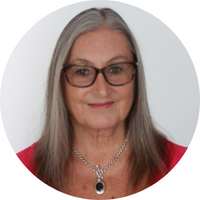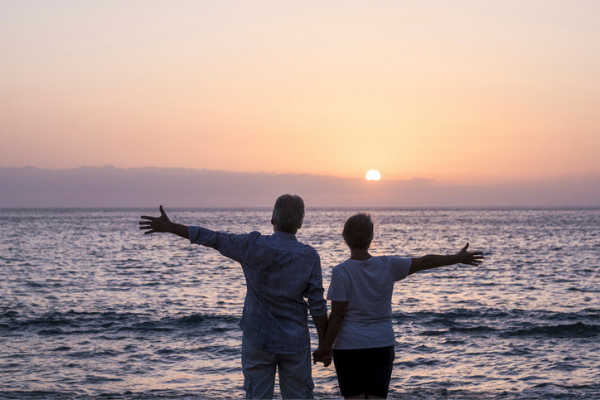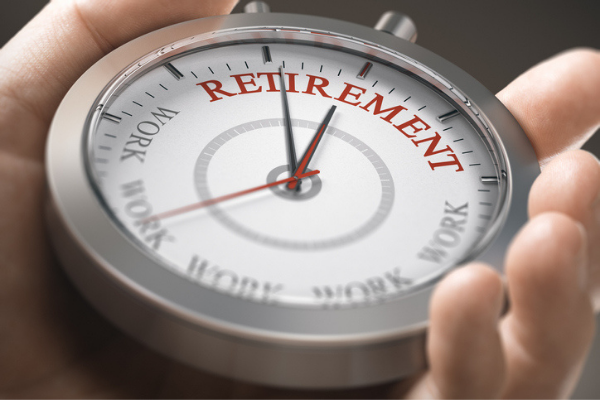
Did you choose retirement? Or was it chosen for you?
You could say I chose to retire; but, in reality, I chose to take voluntary severance. I decided it was time to look at what else was available and, if nothing appealing turned up, then retire. Prior to the announcement of the voluntary severance scheme, I had not thought to retire before the normal retirement age; but the scheme provided an opportunity to re-think the next stage of my life. It was not an easy decision to make because I liked the work that I was doing but I have not regretted that decision.
How was the transition from the working world to retirement?
The transition was surprisingly easy. I was in control of my life, I made the decision to terminate my employment, I had sufficient funds to retire early, and with no work to keep me busy every minute of the day I had the time to enjoy life, exercise more, and look to see if there were other opportunities I may like to pursue. I think it helped that school friends were taking early retirement – probably a consequence of our shared early career understanding of a retirement age of 60 until the goal posts moved mid-career.
Looking back, what do you wish you knew about retirement before you retired?
I wish I had known just how much fun it would be to retire. Provided you plan for financial stability the world is yours to explore – well, until COVID came along. Maybe it is part of our personality, or possibly the roles we have played in our workplace, retirement is sometimes looked upon as a terrifying step where you lose your identity, or authority, and have to think of things to keep yourself occupied every day. I know who I am and what I have achieved; and now wish there was more time in the day to do the things I like to do.
What’s your best advice for someone in their 20s/30s?
Enjoy today, but plan for that enjoyment to be extended throughout your entire life span, and that means having a good financial plan for your retirement.
What do you enjoy most about being retired?
While at work I found I had little time for the hobbies I enjoyed. Over the years I spent less time on out-of-work activities such as scuba diving, squash, gym, ballet and international vacations, eventually losing many of my hobbies. Taking into account my age and past sports injuries I now have the time to start afresh with new and exciting ways to stay fit.
Work-related travel may take you to many interesting parts of the world but unlike vacations, you rarely get to see anything beyond a conference room and an airport. Therefore, I really look forward to interesting vacations. I spend a significant amount of time researching and planning each trip.
As a result, Glyn and I have had some great trips to various countries in the Far East, East Africa and Europe; but not South America and it is time to change that. Book guides, the web, and tour options give you a good sense of what is out there. From that it is easy to generate your own two- or three-stop trip seeing and doing exactly what you want. I was focusing on areas around Argentina, Chile and/or Brazil when SARS-CoV-2 emerged. After the second wave of COVID it became clear that it would be a while before it was safe to resume my planning; so, for now the project is on-hold.
What’s the biggest challenge you have confronted to this point in your retirement?
I listened to my financial advisors, set aside funds for my retirement, and financial projections looked favorable for a comfortable early retirement. Despite all of that, the first year that I needed to spend my savings on everyday life gave me pause for thought. There was no logic as to why I was concerned other than we can never predict the future. Though being cautious in those first few years of retirement helped me adapt from a regular salary to a smaller pension.
How do you stay connected to the chemistry enterprise as a retiree?
Now that I no longer work, I have much more time to get involved with the ACS, keep up with articles of interest, and be active in my division. Currently, I am one of the CELL councilors and a member of DAC.
What do you like most about where you are living in retirement? What’s one thing you wish you could change about where you live?
I moved from Delaware to Florida after finishing work in order to be closer to Glyn’s place of work. Glyn already had rented accommodation, so I just moved in while we looked for our next home. Once we had chosen our next place, I had the responsibility to oversee the renovation project of our new apartment. This was a major project which started with stripping the apartment down to the studs and rebuilding. It is really great to live in a place that is exactly how you designed it to be.
Climate change and hurricanes apart, my apartment is situated on the St John’s River with its Riverwalk, sidewalks, parks and only a thirty-minute drive from the airport. It’s easy to access by car and great for getting around by foot. There’s only one problem -- there’s very little parking when you get here!
What guidance do you have for people who are getting ready to retire?
Everyone is different and there is no set formula for a transition from work to retirement. Financial planning for retirement starts early. Formulating your 5th quarter transition from work to retirement develops as the time nears. Sometimes you may get a mental block of how to fill those unstructured days but consider this – what have always wanted to do but work always got in the way? Is this a project that you could get your teeth into if you had the time?

Sheila was born in Greater Manchester, UK, received her BSc Hons in Chemistry from the University of Sheffield, and was awarded her PhD in inorganic/organometallic chemistry from the University of Birmingham. After five years as a Research Fellow at Aston University working on methacrylate-based hydrogels, and her marriage to Glyn, a psychology professor at the University of Birmingham, she settled down to a life in industry. Sheila joined Courtaulds plc, Coventry, working in a Strategic Research Group focusing on surface modifications to enhance the performance of fibers, films, coatings and advanced materials. Eventually, Sheila changed her focus to cellulose-based products and fiber technologies.
A position in New York piqued Sheila’s interest, and after much discussion she applied for a research post with International Paper (IP), in Tuxedo, NY. Swapping a Birmingham-Coventry commute for a UK-US one she embarked on a 5-year journey with IP to enhance the performance of dissolving pulps culminating in her position as manager of the Chemical Cellulose Business. It wasn’t until she moved to another pulp company, Rayonier in Georgia, that Glyn took early retirement from his job as head of department, and joined Sheila on St Simons Island, GA. Retirement didn’t last long for Glyn and two weeks after relocating he started a new career with a community mental health clinic. Sheila went on to spend 10 years at Rayonier serving in several different management roles from research to manufacturing.
Finally, Sheila’s industrial career turned full circle when she joined Ashland Specialty Ingredients (ASI) in Delaware – a chemical company with products based on both cellulose and synthetic polymers. Meanwhile, Glyn retired from his CEO position and relocated to Delaware only to be lured back to work “to temporarily help out” at his last place of employment. After five years at Ashland, Sheila took voluntary severance and joined her husband back in the south where he continues to work as CEO despite Sheila’s encouragement for him to join her enjoying retirement.
This article has been edited for length and clarity. The opinions expressed in this article are the author's own and do not necessarily reflect the view of their employer or the American Chemical Society.
Copyright 2022 American Chemical Society (All Rights Reserved)













